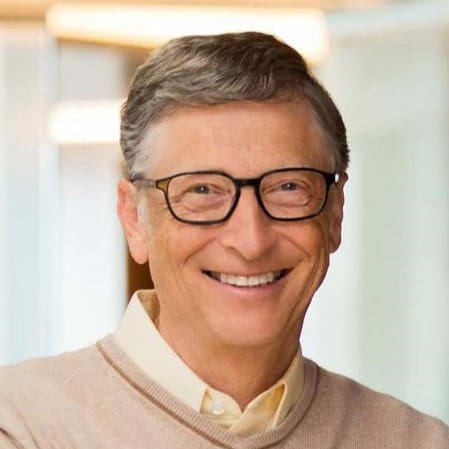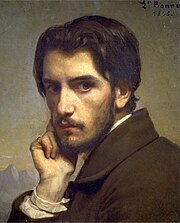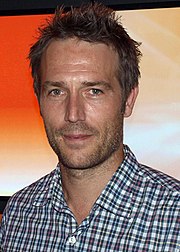Design
Design
Personality
Chart Properties
Your Cross represents the specific theme of your life. This cross embodies your unique potential & the lessons you're here to learn, providing a roadmap to fulfilling your life purpose.
We use the UTC birth time and date to do the calculations required to generate your Human Design chart.
Buy Tokens
Pay as you use, no expiry and no subscription required.Prompt Ideas
Get inspired with some epic prompt ideas.Helmut Kohl's Biography
German statesman and politician of the Christian Democratic Union (CDU) who served as Chancellor of Germany from 1982 to 1998 (of West Germany, 1982–1990; and of reunified Germany, 1990–1998) and as chairman of the CDU from 1973 to 1998. Kohl’s 16-year tenure is the longest of any German Chancellor since Otto von Bismarck, and oversaw the end of the Cold War, the German reunification and the creation of the European Union.
Kohl reached his peak in 1990, nicknamed “King Kohl” he is considered the father of German reunification. After the fall of the Berlin Wall, Kohl earned his place as the most powerful European statesman by boldly moving East Germany into the West with his ten-point plan. Considered a “German provincial politician” by Margaret Thatcher, world leaders, German intellectuals and press, Kohl capitalized on being underestimated by others in order to strive for European integration. Kohl’s middle-of-the-road policy helped to establish reconciliation with France, compensation for Israel, and support for the Atlantic Alliance. Despite his usual low ratings in the polls, his tireless sense of duty to his country made him the longest-serving chancellor in postwar history.
Kohl grew up in the small town of Ludwigshafen, a few miles from the BASF chemical company. His father owned a battlefield commission from WW I and worked as a minor civil servant yet the family had little money. Kohl was forever shaped by his experiences during WW II, during which his older brother Walter was killed. In 1942, at the age of 12, Kohl saved people and pulled bodies from the rubble of destroyed buildings during the Allied bombing runs in his town. At 15, he received his first American CARE package after the end of the war. Father Johannes Fink invited the devout young Catholic teen to dinner at the rectory to discuss the principles of a German democracy. In Kohl’s strict devout Roman Catholic family, there was always time for reading and discussions on philosophy and politics.
At 19, he joined the Christian Democratic party. He enrolled at Heidelberg University and earned his PhD in history. Upon graduation, he worked for the Ludwigshafen chemical plant and climbed the local political ladder. In 1955, he became head of the Rhineland-Palatinate government. In 1969, he became the chairman of the Christian Democratic Union and the youngest state governor. By 1973, Kohl was the youngest Party National Chairman and leader of the opposition in the Bundestag, the lower chamber of West Germany’s parliament. During the last half of the 1970s and in the early ’80s, Kohl floundered in his political wilderness.
In 1982, Helmut Schmidt’s coalition government collapsed and Kohl formed a new coalition government. In 1983 he won the national German elections. When he replaced Schmidt as Chancellor of Germany there was an immediate change of style. Schmidt considered Kohl the village idiot. The press and German intellectuals poked fun at his 1.96 m (6 ft 5 in) physical bulk, his wordy, coarse manner, and thick accent. The German media constantly challenged his non-intellectual image and poor TV presence. Kohl was viewed as an uncultured mediocrity from the backwaters of Germany plus his inability to converse in foreign languages caused much scorn in his country. German intellectuals claimed that Kohl read on even days and wrote on odd days. Despite the derision, Kohl mastered German political power and managed his longevity by controlling his popular Christian Democratic party.
Before German reunification, the Deutschmark led the European currency markets with economic prosperity and low unemployment for many West Germans. Kohl joined the leaders of the West such as Thatcher, President Reagan, and France’s Mitterand in hammering out economic and political world policies. In November 1989 when the Berlin Wall fell, Kohl wasted no time in gathering his closet political advisors in the chancellery. On the night of 23 November 1989 he outlined his plans for German reunification. His speech unveiling the plan was a major bombshell to the international world.
World leaders had underestimated Kohl’s abilities to mastermind the bringing together of East and West. On his first visit to Dresden in 1990, Kohl was viewed as nothing short of a demi-god. He planned to deliver the East Germans from Soviet communism and rescue the country with the mighty Deutschmark. In hindsight, Kohl underestimated the large social gap between the East Germans and West Germans. After reunification, the German economy sputtered as East Germans poured into the West, unemployment climbed and right-wing extremism began to appear on the nation’s TV sets and newspapers. On 27 September 1998, Kohl was defeated during a difficult campaign by Gerhard Schröder, a Social Democrat. His political era ended and opened a new political stage in Europe where center-left governments now dominate the continent’s politics.
Staunchly Roman Catholic Kohl met his wife, Hannelore Renner, a petite studious Protestant from Saxony at a Quaker social dance in Ludwigshafen. The two, dressed in CARE package clothing that did not fit correctly, fell in love that night. Kohl courted Hannelore for 11 years before they wed in 1960, they had two sons, Walter and Peter. Kohl continued his close connection to his hometown of Ludwigshafen by maintaining his long-term friendships with the local innkeeper, priest and farmer. He attended church every Sunday and on Saturday mornings he went to the large open market in the town square and talked to the ordinary people on the street. Always on a diet to keep his weight under control, Kohl treated his guests to his favorite dish, saumagen, a dish consisting of meat, potatoes and vegetable cooked in the belly of a pig. He owned a large wine collection and had a personal library of more than 5,000 books. His interest in literature helped to establish his personal friendship with the late Francois Mitterrand. He enjoyed strolling in the woods near his village or taking a sauna with world leaders such as Boris Yeltsin, George Bush and Simon Wiesenthal.
In 1999, Kohl had a sudden fall from grace by a scandal about illegal party donations, some $1million in the ’90s. He acknowledged that his acceptance of anonymous donations was “a mistake,” but refused to name his benefactors. He released his memoirs on 24 November 2000, “My Diary, 1998-2000,” as a counter-attack on foes whom he said were trying to criminalize him. Writing with self-pity, nostalgia and resentment, he attacked the center-left that ousted him from power.
The official probe began in January 2000. After a 13-month criminal investigation, Kohl’s name was cleared on 2 March 2001 when he won the legal stamp of innocence in exchange for his agreement to pay a fine for his role in the financial scandal. For taking alleged kickbacks during his 16 years in office, the case was closed when he paid a fine of $140,000.
On 5 July 2001, Kohl’s wife, Hannelore, committed suicide. She had been dealing with illness for the prior seven years that had severely confined her for the last 15 months. (She was born 7 March 1933, Berlin). In April 2008, Kohl was reported to be in intensive care due to a falling accident earlier in the year. Subsequent to his recovery, on 8 May 2008, he married his then 43-year-old partner, Maike Richter, born 1964. Helmut Kohl died at 9:15 AM on 16 June 2017 in the Oggersheim district of Ludwigshafen, his hometown, aged 87 of natural causes.
Link to Wikipedia biography
Helmut Kohl
Your Cross represents the specific theme of your life. This cross embodies your unique potential & the lessons you're here to learn, providing a roadmap to fulfilling your life purpose.
We use the UTC birth time and date to do the calculations required to generate your Human Design chart.






